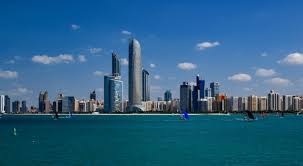Amid what has been a particularly challenging period for the global economy and foreign direct investment (FDI) as a whole, Singapore has held onto its top spot in the Global Cities of the Future ranking for the fourth time in a row. London has also retained second place and Dubai has come in third. It has been a tumultuous year for FDI flows, with Singapore seeing much slower growth in inward FDI compared to London and Dubai, but still retaining its excellence across the board.
Moving up
Dubai has moved up three places since 2018/2019, achieving third place in this year’s ranking. The Dubai Plan 2021, which was launched in 2014, seems to have been successful in making the city a pivotal hub in the global economy. The city is set to announce its next five-year plan in the coming months. Dubai’s favourable tax rates, free zones and well-educated workforce have proven highly attractive to many businesses. Matching both Singapore and London, Dubai has indicated a desire to move its economy to a more environmentally sustainable model. In green developments, Dubai’s clean energy strategy aims to generate 75% of its energy from clean sources by 2050.
Amsterdam edged past Dublin to be awarded the best overall city in the Large Cities category. The city consistently ranks highly for connectivity, with one of Europe’s busiest seaports and one of Europe’s busiest transit hubs in the form of its airport. Amsterdam had the highest inward FDI per 100,000 people between 2015 and 2020; however, Dublin followed very closely behind. The two cities are both primed to benefit from any Brexit-related exodus of firms from London, as they have well-established financial sectors. Indeed, the London Stock Exchange launched a new trading hub in Amsterdam at the end of 2020 in order to prevent any disruption to their European customers. Dublin can be viewed as a particular threat with its lucrative 12.5% corporate tax rate, with the think tank New Financial reporting that Dublin has been the biggest beneficiary of Brexit relocations.
Poland certainly appears to be punching above its weight, with two Polish cities ranking in the top 25 overall locations. Wrocław was also awarded the top overall city in the Mid/Small Cities category. Poland is upholding its reputation of having a well-educated workforce, coupled with good cost effectiveness. The country also has 14 Special Economic Zones, which allow investors to benefit from lower taxes and other state aid.
Australia continues to dominate the Human Capital and Lifestyle rankings, with Melbourne ranking first, closely followed by Sydney and Adelaide in third and fourth place. However, health officials in Australia have said that the country is unlikely to fully reopen its borders during 2021, and this could have ramifications for the country’s talent pool.
Looking forward, the arrival and rollout of vaccines is certainly cause for optimism. Unfortunately for cities dependent on tourism, it is estimated by the United Nations World Tourism Organization that it could take until 2023 for the travel sector to have anything comparable to the volume of travel pre-pandemic. The rise of home-working has also offered a new incentive opportunity for locations. Countries such as Barbados and Bermuda are offering one-year resident programmes, hoping to attract the new generation of digital nomads. Locations across the globe certainly seem to be focusing their economic recovery efforts towards more digital and technology focused sectors, with a particular emphasis on environmental sustainability.
Source: fDi Intelligence
https://www.investinabudhabi.gov.ae/News/Abu-Dhabi-ranks-12th-among-fDis-Global-Cities-of-the-Future





